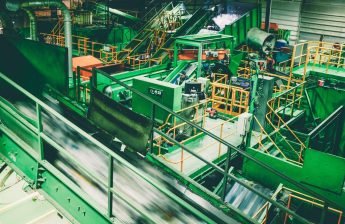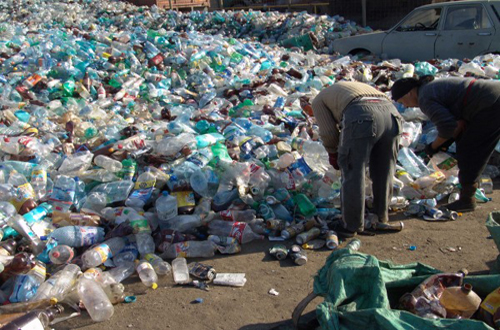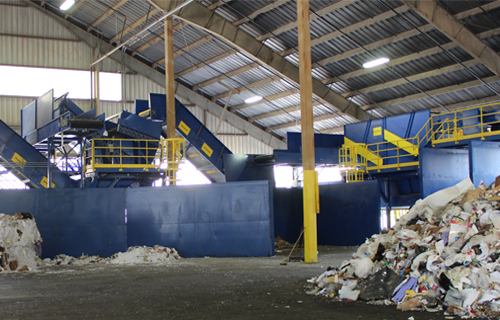HPC Industries LLC’s recycling operation, CarbonLITE Industries LLC, will open a 220,000-square-foot bottle-to-bottle PET recycling plant in Riverside, Calif. in mid-2011.
The operation is aimed at reducing the carbon footprint from PET bottle production and keeping bales of that recycled material from being exported from the West Coast to China.
The initial $40 million investment includes nearly $30 million of equipment for the first phase of the project, which will create a line that with the capacity to produce 100 million pounds of washed flake, and food-grade flake and pellets, said CarbonLITE President Neville Browne in a Sept. 24 phone interview.
The second phase, scheduled to go into operation in mid-2012, will boost capacity to 200 million pounds, and make it the second-largest PET recycling plant in the United States.
The planned return to PET recycling for HPC comes five months after HPC chairman and plastics industry veteran Leon Farahnik sold the company’s thermoforming business, PWP Industries ― which included a year-old $21 million PET recycling facility in Davisville, West Va. ― to Pactiv Corp.
“There are 500 million pounds of material leaving California [annually] in bales,” Browne said. “We think that material should be processed in the United States. We are opening the plant to help reduce the carbon footprint” of PET bottle production. “One pound of recycled resin has a carbon footprint that is eight times less than a pound of virgin PET.
“This is the driving force for our name and our plant and the primary reason we wanted to get into PET recycling,” he said. “All of the other reasons ― reducing landfill problems, reducing ocean pollution and reducing visible land pollution ― are secondary.
“Our primary reason for doing this is resource preservation,” Browne said. “We are very much opposed to destroying plastics and to degradable plastics. We see that as the destruction of a very important resource. The implications for carbon reduction and resource preservation make recycling the only responsible option.”
Browne said that about 85 percent of the plant’s production would be clear flake and pellets and about 15 percent green flakes and pellets. He said the plan is to operate four shifts 24/7 and employ roughly 70 people initially.
Until the Riverside facility is operational, the CarbonLITE team will operate from HPC’s offices in Los Angeles. Hilex Poly Co. LLC, a plastic film and bag maker based in Hartsville, S.C., is also a HPC company.
PWP Industries, when it was under the ownership of HPC, had said that it planned to build a PET recycling facility in southern California and have that plant operating by mid-2010.
So HPC is continuing the plan the corporation had in place before it sold PWP, but has upped the size of the plant and planned production substantially ― from 80 million pounds to 200 million pounds.
The new Riverside plant will differ in several ways from the Davisville plant, Browne said. Most significantly, it will use bottles as its source material, not flake, and will be more than twice as large as the Davisville plant in both square footage and production capacity.
In addition, CarbonLITE will be using a different supplier for its decontamination/pelletizing process than HPC did when it operated the PWP plant in Davisville. The Riverside plant will use the Vacurema system from Erema GmbH, based in Linz, Austria, for decontamination and pelletizing, said Browne.
The Italian firm Sorema slr in Como, Italy will supply the wash and grinding equipment, and Bezner Anlagen Und Machinenbau GmbH in Ravensburg, Germany, will supply the bale-breaking and sorting equipment, Browne said.
Source : www.plastics.com






